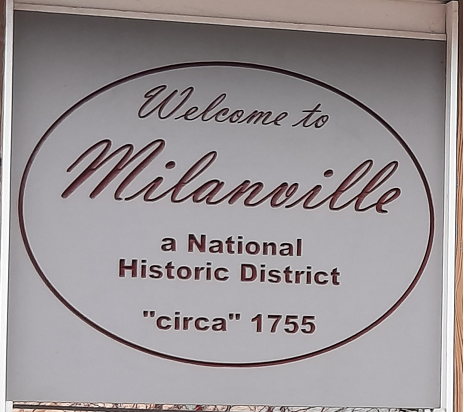Drilling stalled in Allegheny National Forest
March 18, 2009Hancock and the Marcellus Shale: Gas Extraction Along the Upper Delaware
April 15, 2009By Jon Hurdle, Reuters, Fri Mar 20, 2009 6:57pm EDT
(Reuters) – Pennsylvania’s top environmental official said on Friday that a natural gas drilling boom would inevitably result in some environmental damage including possible contamination of water supplies.
Responding to concerns that drilling in some areas has caused toxic chemicals to pollute drinking water, John Hanger said the value of the gas underlying Pennsylvania and parts of surrounding states outweighed damage drilling may cause.
“You can’t do a large amount of drilling and have zero impact,” Hanger, acting secretary of the state’s Department of Environmental Protection, told Reuters. “There’s going to be a lot of good that comes from drilling in Pennsylvania, but
there are also going to be some problems.”
Hanger said he could not confirm or deny reports that water in the northeast Pennsylvania township of Dimock — where many producing wells are located — is being contaminated by chemicals from a process called hydrofracturing, or “fracking,” in which chemicals are forced deep into the rock mixed with water and sand.
He acknowledged that some of the chemicals could be dangerous to human health but said that risk has to be weighed against the benefits that will come from the exploitation of what he called the “enormous” gas reserves contained in the Marcellus Shale.
“Some of these chemicals are things you couldn’t drink. There’s no doubt about that,” he said. “We have processes that go on in our lives all the time that involve these chemicals, and we run a certain amount of risk because of the benefits.”
He pledged that officials would respond diligently to any complaints about polluted water resulting from the drilling. “We are absolutely focused on protecting our water,” he said.
Energy companies such as Cabot Oil and Gas, which operates in the Dimock area, say the chemicals used in fracking fluid are heavily diluted and pose no threat to health. They also say the fluid is injected a mile or more underground, thousands of feet below the level of drinking water aquifers.
Residents in Dimock say their water has caused sickness and at times has become discolored and foul-smelling since drilling started.
Responding to concerns about gas drilling, DEP officials on Friday published a list of fracking chemicals on the agency’s website for the first time, under the heading “Summary of Hydraulic Fracture Solutions.”
Hanger said the Marcellus reserve contains at least 350 trillion cubic feet of natural gas, or enough to supply the entire U.S. demand for 10 to 15 years without relying on the output of any other state, Canada or Mexico.
He predicted development of the field, which is in a very early stage, would bring billions of dollars to the state and create tens of thousands of jobs. Natural gas would also benefit the environment, he because is cleaner burning than oil or coal.



